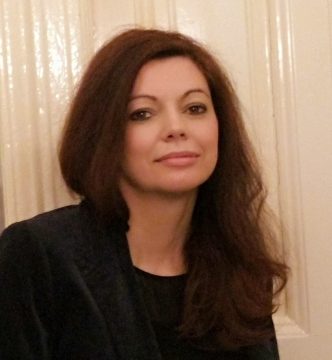Tímea Jablonczay is a research fellow at the Institute of Advanced Studies in Kőszeg (iASK) in Central-Europe and the V4, „Historical and Cultural Heritage in Central Europe” Project, and she is also working at the University of Milton Friedman at the Department of Media and Cultural Studies, Budapest as an Associate Professor. She teaches Gender Issues in Media, Identity-discourses, Visual, Intercultural Communication, and Critical Cultural Studies in different levels (BA and MA). Her interest lies within the field of literary and critical cultural studies, transcultural memory studies; her works focus on questions of representational practices of different identities, diasporic experiences, and multidirectional memorial practices in literary and non-literary texts from transcultural and transnational perspectives. Her specific areas of research are Hungarian female Holocaust testimonies, the “Hungarian minority” literary field related to the issue of remembering and forgetting of the traumatic past, and the work of transcultural memory. Within this project she is exploring the cultural heterogenity, the plurality of identities and literary works of Erzsi Szenes (1902-1981) in Central-Europe and Israel, scrutinizing her daily living conditions in a Jewish community in Czecho/Slovakia (Michalovce) before the Holocaust, investigating her literary career in Central-Europe, and her holocaust and diasporic memories in Israel after the Holocaust.
Topics: Multiple Identity, Female Holocaust Testimony, Diascporic Memory. Research on the career and works of Erzsi Szenes
